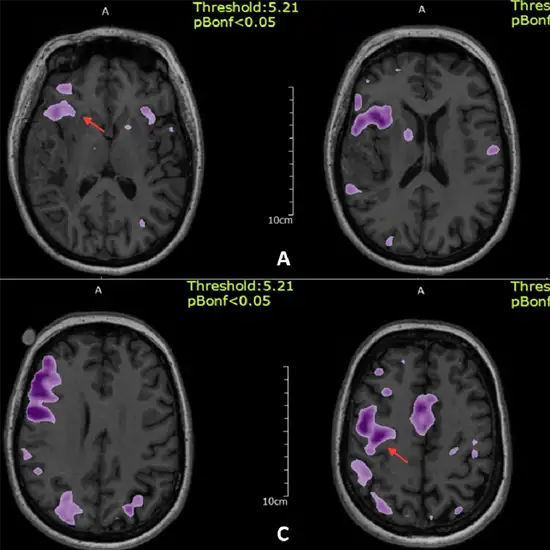FUNCTIONAL MRI
The Functional MRI (fMRI )technique tracks minute variations in blood flow that are brought on by brain activity. It may be used to examine the brain’s functional anatomy (determine which parts of the brain are handling critical functions), evaluate the effects of a stroke or other disease, or guide brain treatment.
Why is Functional MRI Done?
- Presurgical planning
- Surgical planning
- Therapeutic follow up
- Assessment of language functions for epilepsy
What is the procedure for Functional MRI?
- The technologist will place you on the mobile exam table. To help you remain motionless and hold your position, doctors may apply straps and bolsters.
- The technician may place items near or all around the area of the body being checked that have coils that may broadcast and receive radio waves.
- Most MRI tests are made up of a number of runs (sequences), some of which can last for a while. Each run will result in a different sound.
- Your head can be put in a brace made to hold it steady during the fMRI scan. This brace can come with a customized mask for you. To deliver audio-visual stimuli during the scan, such as a computer screen projection or recorded noises, you might be given specialized goggles and/or earbuds to wear.
- If your exam requires a contrast material, a doctor, nurse, or technologist will insert an intravenous catheter (IV line) into a vein in your hand or arm. Using this IV, the contrast agent will be injected.
- You will be positioned inside the MRI machine's magnet. The examination will be conducted by a technician while they are seated at a computer outside the examination room. Intercom communication will be available with the technologist.
- The technologist may ask you to wait until the exam is finished while the radiologist reviews the photos in case more are required.
- After the examination is over, the technician will take out your IV line and cover the insertion site with a tiny dressing.
- The full exam is often finished in an hour.
Risks
When necessary safety precautions are taken, the average patient nearly never runs any risk during an MRI session.
If your exam involves the use of contrast material, there is a very small chance of an allergic reaction. These reactions are typically moderate and are within the control of medication. You will have access to a doctor right away if you experience an allergic response.
Written By
Ms. Katherine
Education Department
